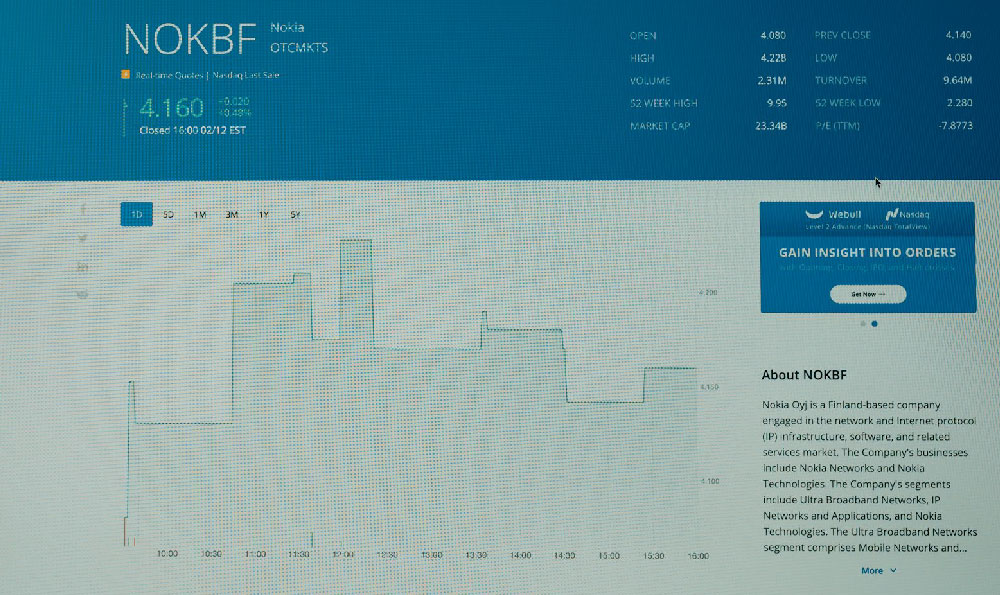Fidelity Investments, a name synonymous with financial stability and wealth management, is colossal, managing trillions of dollars in assets. Quantifying its precise size, however, requires looking beyond just a single number. Consider its assets under management (AUM), which fluctuate with market conditions but consistently remain within the multi-trillion dollar range. This figure represents the total market value of the investments that Fidelity manages on behalf of its clients, including individuals, institutions, and retirement plans. Beyond AUM, evaluating Fidelity's size necessitates considering its customer base, which numbers in the tens of millions. These customers represent a diverse range of investors, from novice traders making their first forays into the market to sophisticated institutional investors managing complex portfolios. The sheer scale of its clientele demonstrates the breadth of Fidelity's reach and influence within the financial landscape.
Furthermore, the company's workforce provides another dimension of its size. Fidelity employs tens of thousands of individuals across various locations globally. This large workforce is critical for supporting its extensive operations, from customer service and investment management to technology development and compliance. A significant portion of this workforce is dedicated to research and analysis, enabling Fidelity to stay ahead of market trends and provide informed investment advice to its clients. Looking at revenue also paints a clear picture. Fidelity generates billions of dollars in revenue annually, derived from various sources, including management fees, transaction fees, and advisory services. This revenue stream allows the company to reinvest in its infrastructure, technology, and human capital, further solidifying its position as a leading financial institution. The geographical footprint of Fidelity is equally expansive, with offices and operations spanning across numerous countries. This global presence allows the company to cater to international investors and participate in diverse markets, mitigating risk and expanding investment opportunities for its clients.
The reasons underpinning Fidelity's success and dominance in the financial industry are multifaceted. A key factor is its long-standing history and established reputation. Fidelity has been in operation for decades, building a track record of consistent performance and client satisfaction. This longevity provides a sense of stability and trust, which is particularly important in the volatile world of finance. Another critical aspect is Fidelity's commitment to innovation. The company has consistently invested in technology to enhance its platforms, tools, and services. This includes developing sophisticated trading platforms, offering mobile apps for on-the-go access, and leveraging data analytics to improve investment decision-making. Furthermore, Fidelity places a strong emphasis on customer service. The company provides a wide range of resources and support to its clients, including educational materials, investment advice, and personalized financial planning. This commitment to customer satisfaction fosters long-term relationships and contributes to client retention.

Fidelity's diversified business model is another significant advantage. The company offers a wide range of products and services, catering to different investment needs and risk profiles. This includes mutual funds, exchange-traded funds (ETFs), brokerage accounts, retirement plans, and wealth management services. This diversification reduces the company's reliance on any single product or service, mitigating risk and ensuring long-term sustainability. Beyond its product offerings, Fidelity's investment philosophy plays a crucial role in its success. The company employs a disciplined and research-driven approach to investing, focusing on fundamental analysis and long-term value creation. This approach, combined with the expertise of its investment professionals, has enabled Fidelity to deliver consistent returns for its clients over time.
The corporate culture within Fidelity also contributes significantly to its success. The company fosters a culture of innovation, collaboration, and continuous learning. Employees are encouraged to share ideas, challenge the status quo, and pursue professional development. This supportive and stimulating work environment attracts and retains top talent, ensuring that Fidelity remains at the forefront of the financial industry. Moreover, Fidelity's strong corporate governance and risk management practices are essential for maintaining its reputation and ensuring the stability of its operations. The company adheres to strict regulatory guidelines and implements robust internal controls to mitigate risks and protect its clients' assets.
Looking ahead, Fidelity is likely to continue to evolve and adapt to the changing landscape of the financial industry. The company is investing heavily in emerging technologies such as artificial intelligence and blockchain, which have the potential to transform the way financial services are delivered. Fidelity is also expanding its focus on sustainable investing, offering a range of ESG (environmental, social, and governance) focused products and services to meet the growing demand for socially responsible investments. In conclusion, Fidelity Investments' sheer size is a testament to its enduring success and dominant position in the financial industry. This size is not merely a matter of assets under management, but a combination of its vast customer base, extensive workforce, significant revenue, global presence, and diversified business model. The key factors contributing to this success include its long-standing history, commitment to innovation, focus on customer service, disciplined investment philosophy, strong corporate culture, and robust risk management practices. These elements, working in concert, have established Fidelity as a trusted and respected leader in the world of finance.












